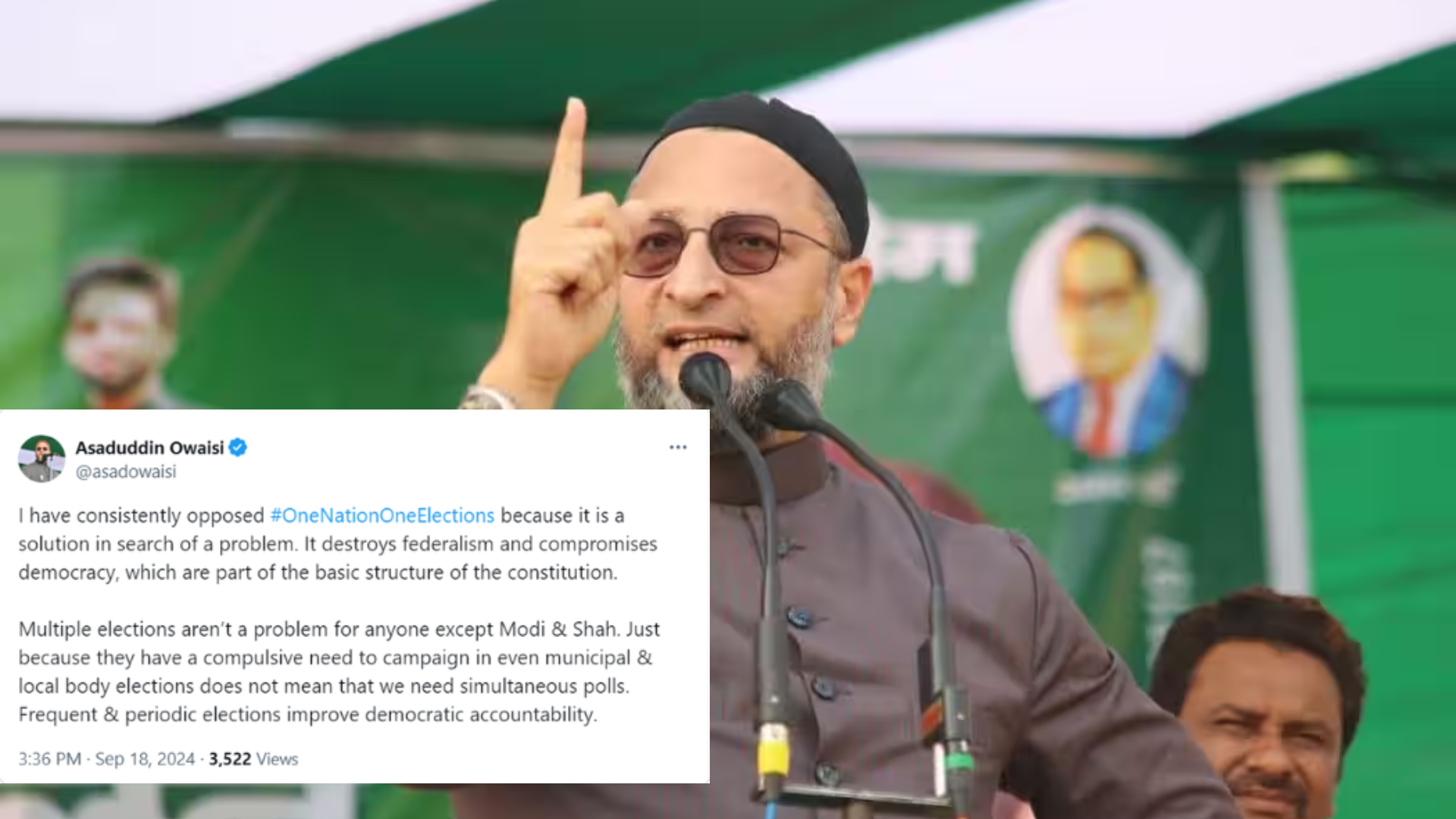In the wake of the Cabinet’s approval of the “one nation, one election” proposal, AIMIM chief Asaduddin Owaisi has emerged as a vocal critic, characterizing the initiative as a “solution in search of a problem.” He argues that this move poses a threat to federalism and undermines the very democracy that is fundamental to the Constitution.
AIMIM Chief Asadudddin Owaisi tweets, “I have consistently opposed One Nation One Elections because it is a solution in search of a problem. It destroys federalism and compromises democracy, which are part of the basic structure of the constitution. Multiple elections aren’t a… pic.twitter.com/5grbv13OkP
— ANI (@ANI) September 18, 2024
Owaisi, representing Hyderabad in Parliament, contends that the notion of multiple elections is not a challenge for anyone except Prime Minister Narendra Modi and Home Minister Amit Shah. He stated, “Their compulsive need to campaign, even in municipal and local body elections, does not justify the call for simultaneous polls. Frequent elections actually enhance democratic accountability.” His remarks highlight a belief that more elections provide opportunities for public engagement and scrutiny of the government.
Echoing Owaisi’s sentiments, Congress President Mallikarjun Kharge voiced his opposition, deeming the proposal impractical within a democratic framework. He emphasized the importance of conducting elections as necessary to ensure the vitality of democracy, stating firmly, “We do not support this.”
Also Read: What is One Nation-One Election? Benefits, Challenges And Everything You Need To Know
Further criticism came from CPI leader D. Raja, who described the concept of a singular election as both “impractical and unrealistic.” He pointed out that many experts have expressed doubts about the feasibility of such a system under the current Constitution. Raja underscored the need for thorough discussion when Parliament reconvenes, emphasizing that if the initiative is pushed forward, a careful analysis of its implications is crucial.
Union Minister Ashwini Vaishnaw, however, confirmed that the Cabinet accepted the recommendations of a high-level committee led by former President Ram Nath Kovind. This committee, which submitted its report in March prior to the Lok Sabha elections, proposed that simultaneous elections for the Lok Sabha and state Assemblies be implemented first, followed by coordinated local body elections within 100 days.
The committee’s recommendations include the formation of an “Implementation Group” to oversee these changes. They argue that conducting elections simultaneously could save resources, encourage development and social cohesion, and reinforce the foundations of democracy in India. Additionally, they suggested the creation of a common electoral roll and voter ID cards through collaboration between the Election Commission of India (ECI) and state election authorities.
Currently, the ECI manages elections for the Lok Sabha and state Assemblies, while state election commissions handle local body elections.




















